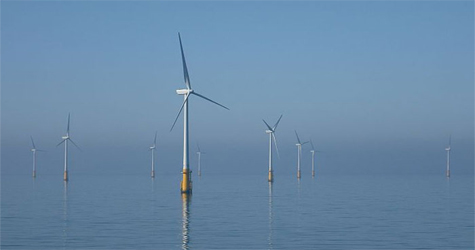Bipartisan bill would extend key investment tax credits for offshore projects
WASHINGTON – Today, Sens. Tom Carper (D-Del.), and Olympia Snowe (R-Maine) introduced legislation to provide critical financial incentives for the investment in offshore wind energy. Joining Sens. Carper and Snowe as cosponsors are Sens. Robert Menendez (D-N.J.), Susan Collins (R-Maine), Chris Coons (D-Del.), Sheldon Whitehouse (D-R.I.), Sherrod Brown (D-Ohio).
Specifically, the Incentivizing Offshore Wind Power Act provides the offshore wind industry with enhanced stability by extending investment tax credits for the first 3,000 MW of offshore wind facilities placed into service – which is an estimate of 600 wind turbines. These tax credits are vital for this new clean energy technology because there is a much longer lead time for the permitting and construction of offshore wind turbines, compared to onshore wind energy. Once awarded a tax credit, companies have five years to install the offshore wind facility. Companies cannot receive other production or investment tax credits in addition to the offshore wind investment tax credit.
The bill defines offshore facilities as any facility located in the inland navigable waters of the United States, including the Great Lakes, or in the coastal waters of the United States, including the territorial seas of the United States, the exclusive economic zone of United States, and the outer Continental Shelf of the United States.
“This legislation is essential to encourage the continued growth of this fledgling industry,” said Sen. Carper. “Guaranteeing these tax incentives for the first 3,000 MW will spur the industry to get these projects up and running, and encourage further development even in these challenging economic times. This support will allow companies like NRG Bluewater Wind to continue to invest in clean, stable wind energy off our nation’s shores in places like Delaware. Harnessing our nation’s offshore wind will give us reliable, clean energy; create good-paying American jobs in manufacturing and construction; and reduce harmful pollution that damages our lungs and impacts our climate.”
“Offshore wind is an American resource that has enormous electricity generation potential that is more consistent than onshore wind while located adjacent to major cities,” said Sen. Snowe, a senior member of the Senate Finance Committee, which has jurisdiction over tax issues. “This legislation provides a clear and consistent tax credit that will put our nation on the path to achieving our goal of operating 20 percent wind energy by 2030 and develop an incentive for energy companies to invest in this breakthrough technology. I applaud Senator Carper’s leadership in developing this legislation and look forward to working with my colleagues on the Finance Committee to enact this bill into law.”
Offshore wind offers enormous potential for producing clean domestic energy and good jobs in areas located close to large population centers along the coasts. Because offshore wind blows faster and more uniformly at sea than the wind on land, it is a huge untapped resource for clean American power. According to the University of Delaware, the winds off the Atlantic Coast have the potential of generating 330 Giga-watts of power. That is enough power to replace about 300 dirty, large coal plants and enough power to support nine states from Massachusetts to North Carolina.
“Offshore wind has great promise to generate tremendous amounts of clean, affordable energy,” said Sen. Menendez. “This targeted, temporary incentive will be critical in jumpstarting the industry and creating thousands of jobs.”
“An investment in offshore wind energy is an investment in our country’s economic future and national security,” said Sen. Coons. “I’ve seen the opportunities from the NRG Bluewater Wind project off Delaware’s coast and understand the hurdles this company and many other developers are facing to get their projects off the ground. However, I’m encouraged by this bipartisan legislation to expand offshore wind energy through targeted tax incentives. By tapping the offshore wind energy sector, we are further ensuring our country remains a leader in clean, renewable energy development that will create a wealth of new high-tech jobs in the region.”
“While offshore wind has the potential to create good jobs, limit our dependence on foreign sources of energy, and reduce carbon pollution, the industry needs the long-term planning horizon this bill would provide,” said Sen. Whitehouse. “Sites such as Quonset Point in Rhode Island stand ready to create jobs by building turbines for offshore wind farms, creating a new domestic manufacturing industry and bringing much-needed economic development.”
A number of proposed offshore wind projects are moving through the development process – including projects in Delaware, Rhode Island, and New Jersey. Projects have also been discussed off the shores of Massachusetts, Maine and the Great Lakes states.
In Delaware, NRG Bluewater Wind has estimated it will create 1,200 jobs during construction – and approximately 300 jobs for operation and maintenance throughout the life of the project










